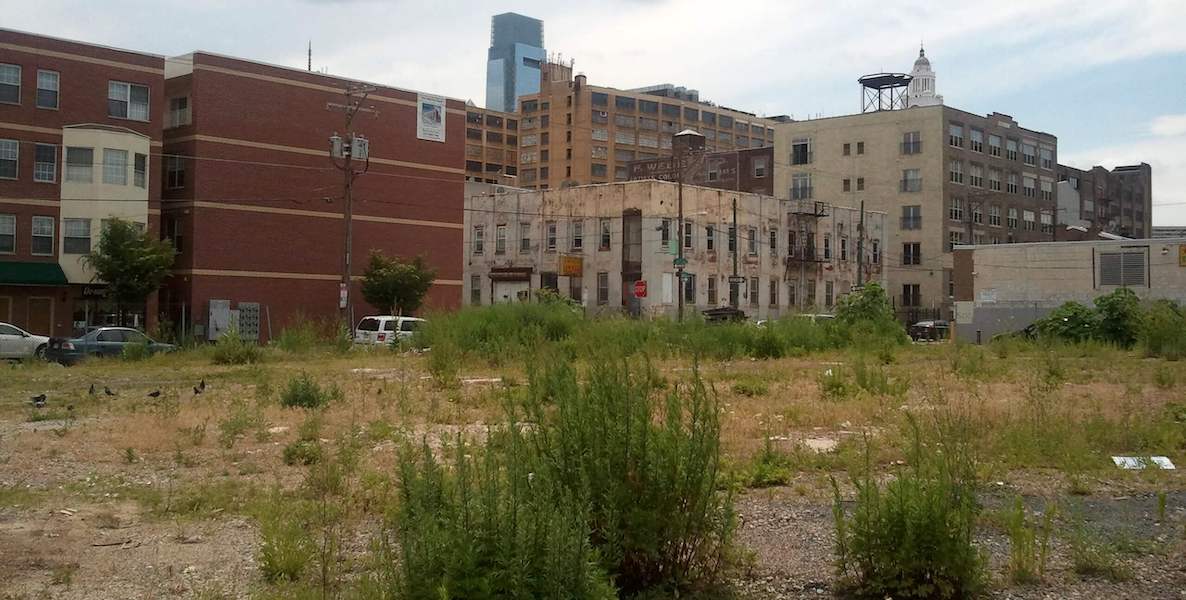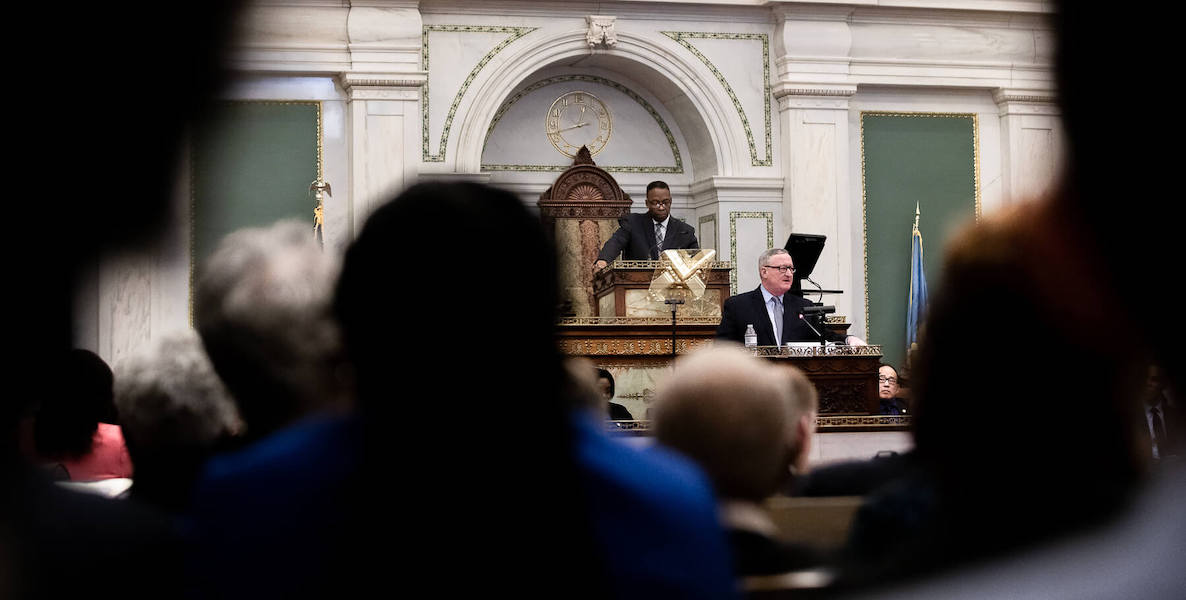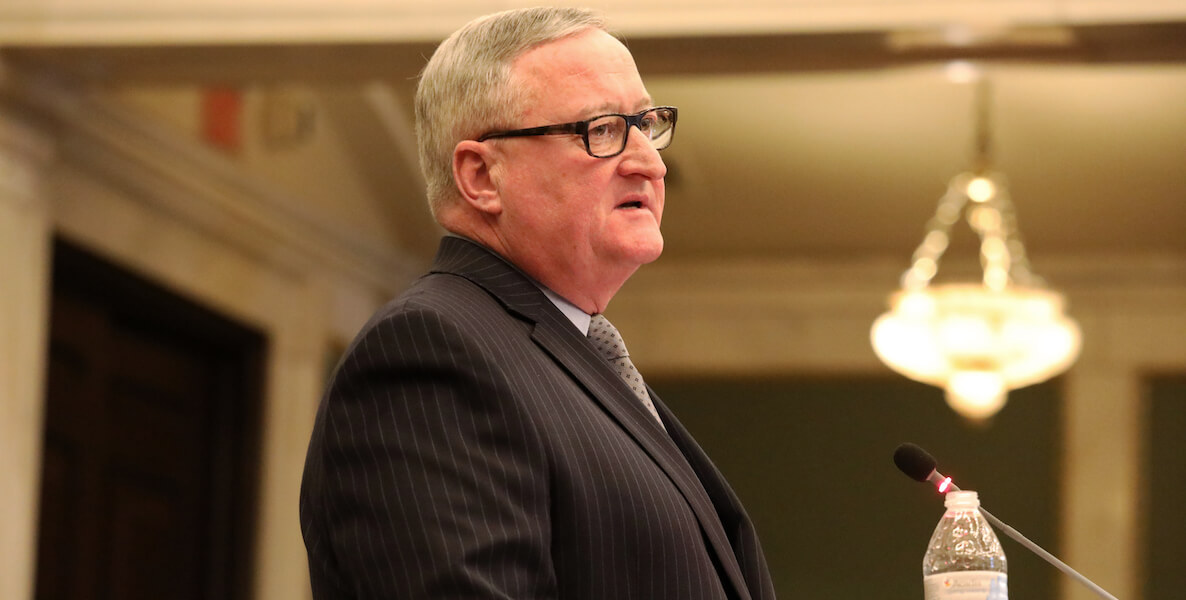Congress has finally passed the $1.9 trillion American Rescue Act, a historic piece of legislation that will provide a massive amount of economic aid to households, businesses, and state and local governments, along with many other significant changes that everyone is still unpacking.
An analysis by the Urban Institute estimates that the combined changes will reduce the number of people living in poverty in 2021 from 44 million to 28 million, and cut child poverty in half.
![]() One of the issues we’ve been following as it pertains to Philadelphia is state and local aid, as the Kenney administration was forecasting a $450 million budget gap heading into this budget season, after having to close around a $750 million gap last year.
One of the issues we’ve been following as it pertains to Philadelphia is state and local aid, as the Kenney administration was forecasting a $450 million budget gap heading into this budget season, after having to close around a $750 million gap last year.
We now know that Philadelphia will be receiving over $1.4 billion in federal aid—an amount roughly $200 million more than the combined shortfall in 2020 and 2021. This leaves the city at around our 2019 revenues, and will allow Mayor Kenney to restore significant service cuts. At the same time, Build Back Better is the name of the game in 2021, so we shouldn’t just copy and paste the 2019 budget and restore everything exactly the same, and there should be a robust debate this year about what our priorities should be going forward.
 It’s not just a free-for-all with this revenue, however. From the PA House Appropriations Committee’s detailed breakdown of Pennsylvania’s allocation, these are the guidelines governments need to adhere to, which are much more flexible than under the CARES Act.
It’s not just a free-for-all with this revenue, however. From the PA House Appropriations Committee’s detailed breakdown of Pennsylvania’s allocation, these are the guidelines governments need to adhere to, which are much more flexible than under the CARES Act.
- Respond to the Covid-19 pandemic and its economic effects
- Revenue loss for the provision of government services due to Covid-19 relative to revenues collected in the most recent full fiscal year prior to the emergency
- Premium pay up to $13 per hour above regular wages for workers performing essential work
- Water, sewer, and broadband infrastructure
- Prohibited uses: Directly or indirectly offsetting a tax cut
- Pension funds
- Funds must be used by December 31, 2024
The $1.4 billion number for Philly is also just the money we are receiving on the municipal side. According to a press release from Congressman Dwight Evans, Philadelphia schools are set to receive an additional $1.8 billion on their own, to be spent over the next two and a half years. For context, the state of Pennsylvania spends about $7 billion every year on education for the whole state, so this is a massive one-time infusion for the School District.
Avi Wolfram-Avent at WHYY says districts across the state are scrambling to figure out how to spend the money well within a tight deadline before September 2023.
Because of the way the federal money will be distributed, schools and districts serving more students in poverty will receive a greater share of the money on a per-pupil basis.
The stimulus bill is not particularly prescriptive. It does say that districts have to use at least a fifth of the money “to address learning loss,” although that guidance is fairly broad. For the rest of the money, local officials will have even more discretion […]
Already, in Philadelphia and elsewhere, there’s talk of expanded summer programs and after-school tutoring to help students recover lost ground.
[PCCY Director Donna] Cooper believes schools should pour the vast majority of federal money into these kinds of stop-gap interventions—interventions aimed at helping the students harmed most over the last year.
She envisions districts hiring fleets of well-compensated, short-term contract workers that would act as classroom assistants, freeing up classroom instructors to work with students in small groups.
It’s an incredible problem to have compared to what could have been this year, and we’ll continue to share updates here as we learn more about what’s in the bill.
The Citizen is one of 20 news organizations producing Broke in Philly, a collaborative reporting project on solutions to poverty and the city’s push towards economic justice. Follow the project on Twitter @BrokeInPhilly.

Jon Geeting is the director of engagement at Philadelphia 3.0, a political action committee that supports efforts to reform and modernize City Hall. This is part of a series of articles running on both The Citizen and 3.0’s blog.
Photo by Deval Parikh / Unsplash







